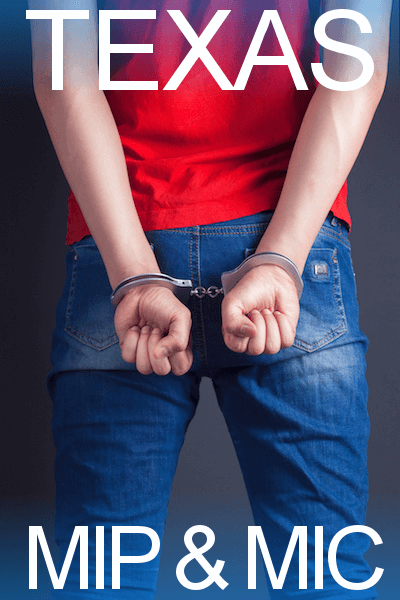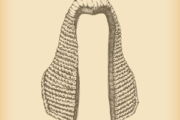
What is the Legal Drinking Age in Texas?
History of the Legal Age of Consumption and Purchase of Alcohol
Currently, in Texas the legal age to purchase or consume alcohol (with few exceptions) is 21.
Prior to 1920, there was no national minimum drinking age, and the laws regarding age varied widely from state to state. Some states had no minimum age for consumption or purchase whatsoever. However, in 1920, the “Grand Experiment” began with the ratification of the
Immediately after the end of prohibition, most states set the minimum alcohol purchase age at 21 because that was the legal age at which one was first able to vote at that time. It is worth noting that the legal purchase age was not necessarily the same as the legal consumption age. Generally, however, the states set the purchase and consumption age the same. In 1971, the legal voting age in the U.S. was lowered to 18 with the ratification of the
In a federal response to the drunk driving crisis, the
Texas followed the same swings in legal purchase age as many other states did post-prohibition. Immediately after the end of prohibition, the legal purchase age in Texas was set to 21 years of age. In 1973, the age was lowered to 18 to match the new legal voting age, and in 1981, the minimum purchase age was raised to 19. In response to the National Minimum Drinking Age Act, the minimum purchase age was raised to 21 in 1986, where it remains today.
Deaths and injuries related to drunk driving gained widespread attention from state and local governments. The laws punishing drunk driving injury or death (Intoxication Manslaughter or Assault) cases are extremely severe.The law continues to become more restrictive and punishments increasingly steep, in large part because of advocacy groups such as Mothers Against Drunk Driving (MADD).
Texas Alcohol Laws – Crimes Related to Age

There are several different crimes in Texas based on consuming, purchasing, or attempting to purchase alcohol is under the age of 21. These laws regarding the legal drinking age are found in
Purchase or Attempted Purchase of Alcohol by Minor
A minor commits an offense if he or she purchases an alcoholic beverage. However, it is not an offense if the minor purchases an alcoholic beverage under the immediate supervision of a commissioned peace officer engaged in enforcing the provisions of the ABC. For example, a minor who purchases a drink as part of a “sting” operation conducted by the Texas Alcoholic Beverage Commission would not have committed an offense. It is also an offense if, with specific intent to purchase an alcoholic beverage, a minor does an act that amounts to more than mere preparation in an attempt to purchase the beverage, but ultimately fails to actually purchase the beverage.
For the Texas alcohol laws related to when beer and liquor can be sold, read our post on Texas Blue Laws.
On the other side of the counter or bar: Selling alcohol to a minor can be a very serious criminal charge. Often, these charges arise form “sting” operations. Do not speak with law enforcement if you have been accused of selling or providing alcohol to a minor. Contact a criminal defense lawyer.
Misrepresentation of Age by a Minor
A minor commits an offense if he falsely states that he is 21 years of age or older or presents any document, such as an ID, that indicates he is 21 years or older to a person selling or serving alcoholic drinks.
Consumption of Alcohol by a Minor (MIC)
A minor commits an offense if he consumes an alcoholic beverage. There is a notable exception to this offense known as the “parental exception” which states that it is an affirmative defense to prosecution that the alcoholic beverage was consumed in the visible presence of the minor’s parent, guardian, or spouse. Also, it is not an offense if the minor was the first person to request emergency medical assistance in response to a possible alcohol overdose of themselves or another person and the minor stayed at the scene until help arrived and cooperated with medical or law enforcement personnel. A minor who commits this offense and has two or more prior convictions of this offense will not be eligible for deferred disposition.
Possession of Alcohol by Minor (MIP)
A minor commits an offense if he possesses an alcoholic beverage. However, the parental exception and alcohol overdose exception under the Consumption of Alcohol by Minor section also apply to this offense. It is also an exception if the minor possesses the beverage while in the course and scope of their employment, if the minor is under the supervision of a commissioned peace officer enforcing the ABC, or if the beverage is lawfully provided in special statutory circumstances, such as in a college culinary course.
Driving or Operating a Watercraft Under the Influence of Alcohol by a Minor (DUI)
A minor commits an offense if he or she operates a motor vehicle or watercraft in a public place while having any detectible amount of alcohol in their system. The police officer charging a minor with a DUI is not required to arrest the minor, but may issues a written notice with a date the minor must appear in court before a magistrate judge. This is a different crime than DWI. The terms are not interchangeable in Texas.
Punishment for Alcohol-Related Offenses by a Minor
Purchase or Attempted Purchase of Alcohol by Minor, Consumption of Alcohol by a Minor, Possession of Alcohol by Minor, and Misrepresentation of Age by a Minor are all Class C misdemeanors. In addition to a fine, a judge may also order an alcohol awareness class and/or license suspension. A minor that is convicted or placed on deferred disposition for a one of the previously listed offenses will be ordered to perform community supervision for (1) no less than 8 or no more than 12 hours if no previous conviction of one of the listed offenses, or (2) no less than 20 or no more than 40 hours if the minor has a previous conviction of one of the listed offenses. A minor convicted of an offense will also have his driver’s license or permit suspended for: (1) 30 days if he has not previously been convicted of one of the listed offenses, (2) 60 days if he has one previous conviction of one of the offenses, or (3) 180 days if he has two or more previous convictions of one (or more) of the offenses. If the offender is a minor over the age of 17 and has two or more previous convictions of any of the listed offenses, the offense is punishable by (1) a fine no less than $250 and no more than $2,000, (2) confinement in jail for no longer than 180 days, (3) or both the fine and confinement. A minor over the age of 17 that has two or more prior convictions of one of the listed offenses will not be eligible for deferred disposition or deferred adjudication.
A DUI is also a Class C misdemeanor. In addition to a fine and a possible license suspension or mandatory alcohol awareness program, a minor convicted of a DUI will be ordered to perform community supervision for (1) no less than 20 or no more than 40 hours if no previous DUI conviction, or (2) no less than 40 or no more than 60 hours if the minor has a previous DUI conviction. The community service will be related to education about prevention and misuse of alcohol. Although a DUI is normally a Class C misdemeanor that does not include any jail time, if the minor is older than 17 and has two or more prior DUI convictions, the punishment may be (1) a fine no less than $500 and no more than $2,000, (2) confinement in jail for no longer than 180 days, (3) or both the fine and confinement. A minor of any age that has two or more prior DUI convictions will not be eligible for deferred disposition or deferred adjudication.


